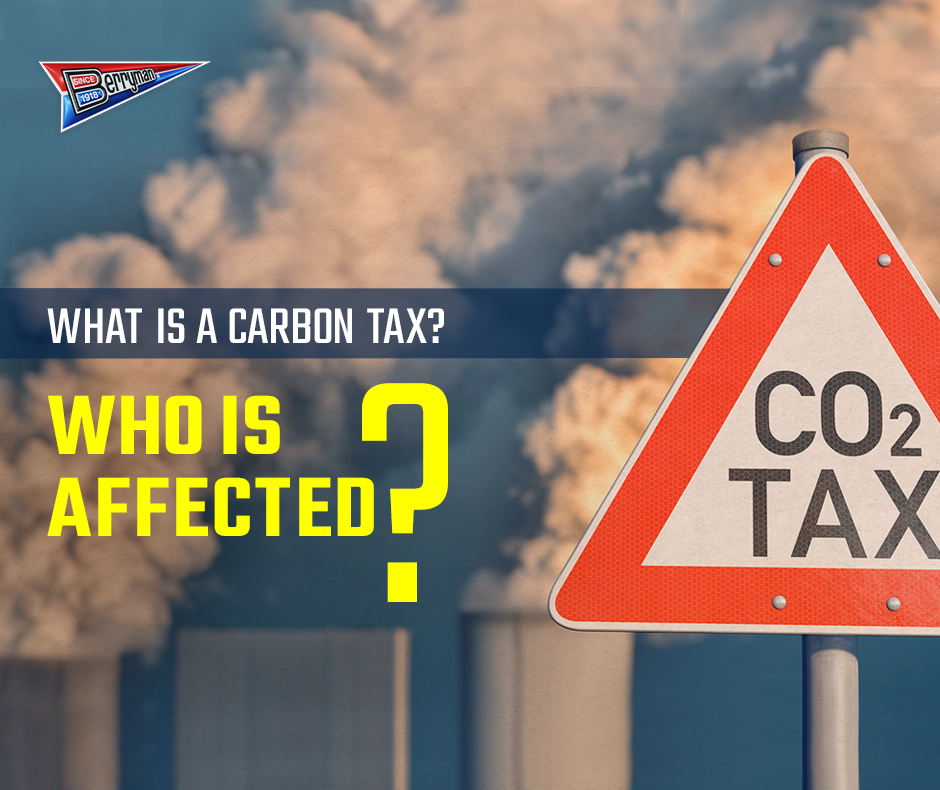
What Is a Carbon Tax? Who Is Affected?
Global warming and climate change gained the spotlight after scientists sounded the alarm over increasing wildfires and rising temperatures in 1988. Since then, the topic of climate change has been a source of intense discussion among politicians and policymakers.
As global temperatures continue to rise, the sense of urgency is more apparent as advocacy groups, climate experts and lawmakers call for governments to enact policies that can help address climate change. One policy that has gained traction over the years is the implementation of a carbon tax.
What is a carbon tax, and who does it affect? Learn more about the carbon tax and its implications below.
What Is a Carbon Tax?
Carbon tax is a policy that puts a price on carbon dioxide (CO2) emissions and other greenhouse gases. In the carbon tax, private companies, public organizations and even individuals must pay a fixed price per ton of carbon dioxide gas emitted into the atmosphere. The tax rate increases as the emissions increase.
A carbon tax is enacted as a way of creating a social cost for increasing carbon emissions, which places an even higher burden on the atmosphere. Another way of looking at it is that it creates an economic incentive for all to switch to more sustainable and environmentally-friendly alternatives and reduce carbon emissions.
Who Is Affected By the Carbon Tax?
Generally, a carbon tax can significantly impact industries and organizations that emit high levels of CO2, such as those involved in energy production and generation, fossil fuels and manufacturing. Essentially, these are companies that depend highly on fossil fuels and contribute heavily to the world’s carbon footprint.
In the U.S., 81% of the country’s energy is generated from fossil fuels, such as oil, coal and natural gas. Over 81% of this energy supply is used by the manufacturing sector, with the mining industry a close second at just 9%.
In a nutshell, the burden of a carbon tax will mostly affect energy-intensive industries that consume large amounts of high-carbon fuel and emit even more CO2 into the atmosphere. Unfortunately, most of this burden may also be passed down to the consumer, considering that higher taxes mean higher operating costs for these industries.
On an individual level, those that rely heavily on fossil fuels in their household and for transportation, such as people living in rural areas and those driving long distances for work, may also be affected by a carbon tax. This is due to the fact that a carbon tax can lead to higher prices for gasoline, oil and electricity.
However, on the other side of the spectrum, an imposed carbon tax may also be beneficial, considering that it could lead to energy-efficient behaviors and the increased adoption of technologies with a much lower carbon footprint. This includes switching to public transportation, smarter use of resources and investing in renewable energy.
Reduce Your Carbon Footprint with Regular Vehicle Maintenance
One way individuals can reduce their carbon footprint and minimize the impact of the carbon tax is through regular vehicle maintenance. By keeping your vehicle operating optimally, you can reduce the amount of carbon monoxide (CO) and CO2 emissions your car emits, reducing its environmental impact. Frequent oil changes, tire rotations and replacing air filters are just some ways to improve fuel efficiency and reduce emissions.
For over 100 years, Berryman Products has been a trusted provider of quality, innovative products that help motorists worldwide maintain their vehicles’ optimal performance on the road. From fuel additives and lubricants to tire sealants and eco-friendly cleaners, Berryman Products is your partner in creating a more sustainable future with products that improve your engine performance and reduce your carbon footprint. For more information on our products, check out our product catalog or send us a message.
